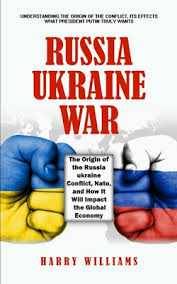UPDATE ON RUSSIA AND UKRAINE WAR
The Russia-Ukraine war, which began in February 2022, has had profound effects both regionally and globally, marking one of the most severe geopolitical crises in recent years. It was sparked when Russia launched a large-scale invasion of Ukraine, escalating tensions that had been simmering since the 2014 annexation of Crimea and the rise of pro-Russian separatist movements in eastern Ukraine’s Donbas region. As the conflict continues, the war has reshaped Europe’s political landscape, challenged global economic stability, and caused immense human suffering.
Roots of the Conflict
The origins of the Russia-Ukraine conflict can be traced back to the fall of the Soviet Union in 1991, when Ukraine declared independence. However, Russia has long held strategic and historical claims over Ukraine, viewing it as within its sphere of influence. Tensions heightened in 2014 when Russia annexed Crimea following a political shift in Ukraine that ousted the pro-Russian president, Viktor Yanukovych, in favor of leaders with a pro-European Union stance. This shift sparked protests and unrest in eastern Ukraine, leading to the emergence of pro-Russian separatist groups in Donetsk and Luhansk, two key regions in the Donbas area. These tensions devolved into a simmering conflict, but it remained largely localized until early 2022.
In February 2022, Russian President Vladimir Putin ordered a full-scale invasion of Ukraine, citing reasons including the defense of ethnic Russians in eastern Ukraine and Ukraine’s potential membership in NATO as a threat to Russian security. Many experts, however, view this as an attempt to reassert Russian dominance in the region and prevent Ukraine from deepening ties with Western countries.
Military and Humanitarian Impact
The conflict has caused widespread devastation across Ukraine, with cities such as Mariupol, Kharkiv, and Bucha experiencing severe destruction. As of 2024, the war has resulted in tens of thousands of casualties, including both soldiers and civilians. Millions of Ukrainians have been displaced, creating one of the largest refugee crises in recent history, with neighboring countries, particularly Poland, receiving a significant number of refugees. International humanitarian organizations have mobilized to provide food, medical aid, and shelter, but the scale of the crisis has stretched resources thin.
Ukraine’s military, bolstered by significant Western aid and military assistance, has shown resilience and capability in defending its territory. Western countries, including the United States and members of the European Union, have provided Ukraine with financial aid, weapons, and training, while imposing severe economic sanctions on Russia. These sanctions have targeted key sectors of Russia’s economy, including energy, banking, and technology. Yet, Russia’s vast energy resources and the ongoing economic relationships with countries like China have helped to partially mitigate the impact of these sanctions.
Global Economic and Political Consequences
The Russia-Ukraine war has had a profound impact on the global economy. One of the most immediate effects was the disruption of energy supplies, as Russia is a major global supplier of oil and natural gas. European countries, which heavily relied on Russian gas, faced an energy crisis, prompting them to seek alternative sources. This crisis accelerated Europe’s push towards renewable energy and diversification of energy imports.
Additionally, both Russia and Ukraine are key players in global agriculture, particularly in the export of wheat, barley, and sunflower oil. The war has disrupted agricultural production and exports, leading to food shortages and price spikes worldwide, particularly affecting developing nations dependent on these imports.
Diplomatic Efforts and the Ongoing Stalemate
Diplomatic efforts have been ongoing, with countries like Turkey and international organizations such as the United Nations attempting to mediate peace talks. However, achieving a lasting resolution has been challenging. Ukraine has demanded full restoration of its territorial sovereignty, including Crimea, while Russia insists on maintaining control over certain territories in the east. The lack of mutual agreement on fundamental issues has led to a prolonged stalemate.
Long-Term Implications and Future Outlook
The Russia-Ukraine war has marked a significant shift in international relations, signaling a renewed rivalry between the West and Russia, with China also emerging as a key player in this complex geopolitical environment. The conflict has heightened concerns about territorial aggression and has led NATO to strengthen its eastern defenses.
For Ukraine, the war has been a unifying force, solidifying national identity and commitment to sovereignty. While the future remains uncertain, the resilience shown by the Ukrainian people and military suggests a prolonged struggle if diplomatic solutions remain elusive. As the war persists, the global community faces the ongoing challenge of addressing its wide-reaching effects and seeking paths to a sustainable peace.




No comments yet
Be the first to share your thoughts!